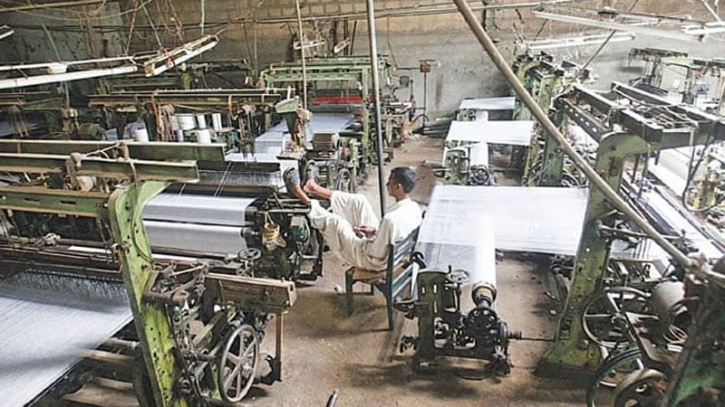Pakistan's textile sector near brink of default, Banking crisis on cards

The textile sector of Pakistan has reached the brink of default in the wake of its inability to service the loans it received under Temporary Economic Refinance Facility (TERF) and Long-Term Facing Facilities (LTFF) which may also lead to a possible banking crisis, discloses the letter of All Pakistan Textile Mills Association (APTMA) to the State Bank of Pakistan written on February 27, 2023.
The State Bank of Pakistan (SBP) during the PTI era provided the TERF and LTFF facilities to help industrialists install more textile units for growth in exports of the South Asian nation.
However, because of the ongoing LCs crisis, stuck-up consignments of imported cotton at the ports owing to the dollars liquidity crunch and withdrawal of RCET by the government in line with IMF diktat, all the new and expansion units in the sector have become non-functional. This has led to immense pressure on export-reignited units which are unable to generate funds to pay even interest on the loans, leading to massive defaults, curtailment capacity and a possible banking crisis.
The textile industry has asked the SBP to extend the moratorium on debt under TERF and LTFF from June 1, 2023, to December 2023 to avoid large-scale Non-Performing Loans (NPLs) and severe negative impacts on the banking sector.
The APTMA has also asked for a Zoom meeting with top functionaries of the SBP.
Banks are not opening LCs or retiring cotton imports, the letter says, which had led to the non-functioning of the textile units.
“Now loyal international customers are reluctant and asking Pakistani suppliers whether or not they will be able to meet deadlines and ship orders on time resulting in a loss of export orders. The industry is running out of cotton stocks and textile mills have either shut down or will shut down in the very near future if decisive and urgent action is not taken.”
The textile sector also urged the SBP to declare the opening of LCs of cotton imports the status of “Must Open.”
The commerce ministry says that textile industry representatives may hold today (Monday) an urgent meeting with top mandarins of the SBP.
The commerce ministry’s top sources said that the prime minister convened meetings on export sector issues four times but the said meetings couldn’t be held mainly because of the premier’s pressing engagements.
The APTMA also mentioned that the business plan for new industrial units and expansion of the existing units had been carved out based on RCET (Regionally Competitive Energy Tariff) — electricity tariff of Rs19.90 per unit and gas rate at 9 cents per MMBTU.
However, with the withdrawal of RCET, the industry is forced to run on an electricity tariff of 40 per unit owing to which the textile sector has started dying out day by day.
The letter disclosed alarming facts saying that the textile sector is already running at less than 50% capacity. Around 7 million workers in the textile sector and textile-related industry were laid off since last summer and if this sector is closed down it will lead to more layoffs resulting in significant unemployment of more than 10 million workers and further deterioration in the balance of payments in the shape of at least $10 billion exports per annum.
The textile industry also highlighted in its letter the bleak cotton production in the country, saying that the country’s cotton production has declined to a historic low this year dropping to 5 million bales due to heavy rains and floods. The cotton production loss has been worth more than $2 billion.
The textile industry consumes nearly 15 million bales and the current season’s anticipated demand indicates that about 10 million bales will need to be imported. However, banks are not opening LCs for the import of cotton.
.png)




